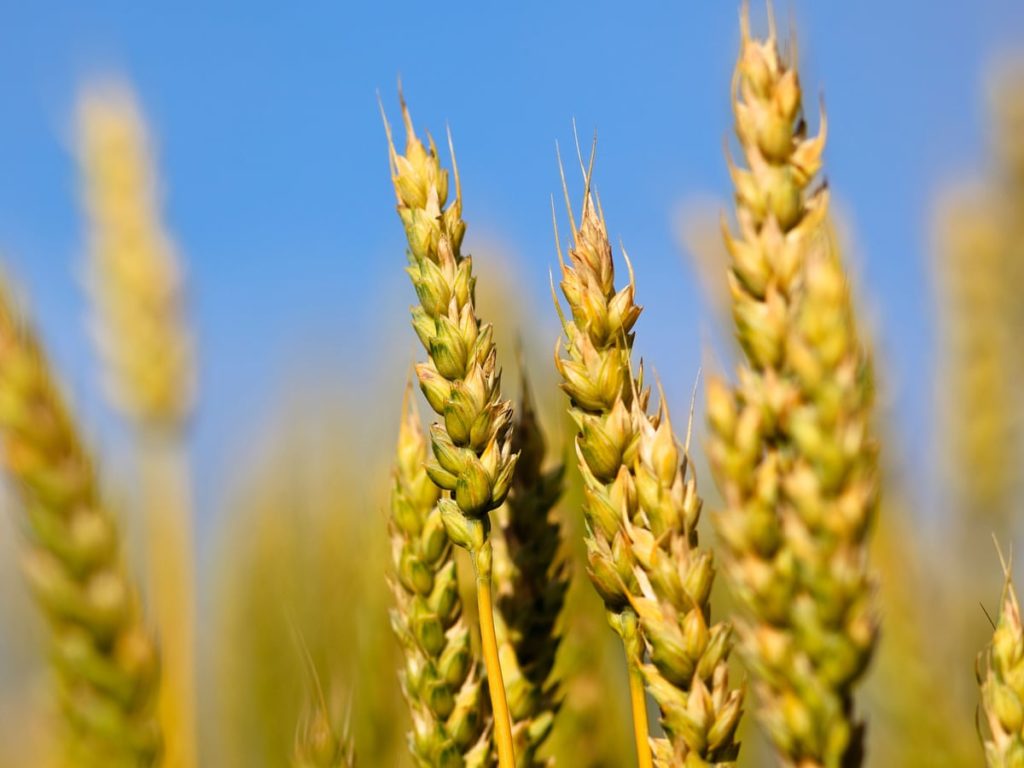
Is it Gluten…or Pesticides? Solutions for gut health may require attention to both
Dr. Isaac Eliaz May 7, 2023
If you’ve been dealing with ongoing digestive problems, you’ve probably considered going gluten free by now. Maybe you’ve even joined the gluten-free movement already. Gluten is increasingly becoming a primary culprit in chronic digestive problems, as well as many other “mystery ailments.”
And these cases are rising.
But what exactly has changed? Why are more people experiencing what can sometimes be debilitating symptoms?
People around the world have been eating wheat for thousands of years, without health consequences. However, the last several decades have seen a sharp rise in both celiac disease and less severe gluten intolerances.
Researchers are finding that the culprit may not be the gluten itself—but also the pesticides and other chemicals used.
The Spectrum of Gluten Intolerance
Gluten may impact your health in different ways, depending on your sensitivity:
·Wheat or Gluten allergy
Produces a severe immune response to wheat and the proteins in contains, but without lasting damage.
·Gluten intolerance
(AKA non-celiac gluten sensitivity)—Unleashes a wide range of symptoms, but without a severe autoimmune response.
·Celiac
This increasingly common autoimmune condition causes tiny amounts of gluten to trigger a severe immune attack on your intestines.
Wheat allergies, while uncommon, can be life-threatening. Celiac disease on the other hand, impacts about 1.4% of the global population. It can result in long-term health problems and complications. Experts estimate that gluten intolerance is the most common problem. With 6% or more of the population affected by some degree of gluten sensitivity.
Both wheat allergies and celiac disease are diagnosed with medical tests. Gluten intolerance on the other hand, is more challenging to properly diagnose because there’s no established diagnostic test. Instead, diagnosis is usually made by elimination, when someone tested negative for celiac, but improves after eliminating gluten.
Signs of Gluten Problems
Gluten intolerance and celiac disease can produce a range of mysterious symptoms and problems including:
· headaches and pain
· depression, stress and anxiety
· joint stiffness and pain
· bone loss
· fatigue
· brain fog and memory problems
· skin problems
The ongoing GI inflammation caused by celiac and gluten intolerance, can damage the gut lining. This can lead to numerous system-wide problems including chronic inflammation, allowing other more serious diseases to take hold.
The main solution is to avoid eating wheat and gluten. But as anyone who’s tried it knows, eliminating gluten from your life is not as easy as it sounds.
Worse, it doesn’t always work.
Why Gluten-Free May Not Be Enough
One of the big challenges in going gluten-free, is that foods labeled as such, often contain gluten. In one report, gluten was detected in 32% of 5,600+ foods labeled gluten-free! 53% of “gluten-free” pizzas and 51% of “gluten-free” pastas still contained gluten. A large-scale report in 2020 led researchers to conclude:
“Foods labeled gluten-free should not be considered safe” for people tha avoid gluten.
However, research shows that even if you do manage to become 100% gluten-free, this alone may not be enough to actively heal your gut from the inflammatory damage.
There’s also another emerging threat to GI health, and it’s closely related to the gluten problem: Glyphosate—the most widely used weed killer in the world. Glyphosate is used extensively on wheat and many other crops grown in the US. And while glyphosate might not seem related to your health issues, research proves otherwise.
Gluten vs Glyphosate
Scientists have raced to understand the rise in gluten-related illnesses. One theory suggests that modern wheat strains have a much higher gluten content. But later results showed that a high-gluten diet didn’t increase GI symptoms, immune responses, or intestinal inflammation when compared to a low- or no-gluten diet.
So researchers shifted their focus to other factors …including glyphosate.
What we’re seeing is that glyphosate poisoning can share a lot of the same symptoms as gluten sensitivity, including intestinal inflammation and damage to long-term digestive function. Glyphosate destroys beneficial bacteria in the gut, and allows pathogenic bacteria a foothold. The toxic weed killer also prevents essential enzymes, cytochromes P450 (CYP450), from functioning properly… the same enzymes that impair in celiac disease.
By shutting down CYP450 enzymes, glyphosate makes it difficult for your body to:
· remove toxins
· create bile (important for detox and nutrient absorption)
· make essential fatty acids
· activate vitamin D
· metabolize vitamin A
Because glyphosate destroys beneficial microbes and allows pathogenic ones to thrive, it’s implicate in a condition called gut dysbiosis, where harmful pathogens outnumber good ones—with serious long-term health impacts.
3 Steps to Protect and Heal Your Gut d
In today’s world, and especially in the US, it can be difficult to completely avoid gluten and glyphosate. But by taking proactive steps to protect yourself and support GI integrity, you can help avoid more serious health problems down the road.
# 1: Detoxify
To start healing your gut, you first need to remove toxins. For this, I recommend safe, gentle, natural detoxifiers that can also support your GI system, as well as block the absorption and of new toxins. To safely cleanse the digestive tract of pesticides and toxins and promote a healthy terrain, my go-to is a targeted pesticide detox formula containing the following:
· Glycine (an amino acid) blocks glyphosate uptake at receptor sites in the body, to help prevent glyphosate from tricking your body into storing it. Glycine also supports production of glutathione to help your body detox.
· Iodine prevents other toxins such as fluoride from storing in places like the thyroid.
· Alginate (a seaweed extract) helps detox the digestive system and prevents toxins from reabsorbing through the intestines.
· Citrus pectin covers a wide range of toxins and heavy metals, and supports overall digestive health.
# 2: Heal
Once your body burden of toxins—including gluten and glyphosate—is reduced, the repair process begins. The goal is to reduce inflammation and help heal the damaged intestinal lining.
Essential gut-healing supplements include:
· Fish oil reduces inflammation and helps heal the gut
· Citrus pectin promotes healthy GI environment
· Glycine is an anti-inflammatory that helps repair the gut wall.
# 3: Replenish
After toxins are actively removed, the intestines have been supported, and healing has begun, you can focus on balancing your gut microbiome.
Research shows that microbiome diversity, including a range of healthy beneficial microbes, can help reduce autoimmune and allergic reactions to gluten and other triggers.
When you replenish and nourish your microbiome, you also support optimal detox capacity, nutrient absorption, immune function, neurological and brain health, and much more. In my practice, I’ve seen remarkable results with an organic, botanically-enhanced probiotic formula containing additional prebiotics, for optimal microbiome balance.
Most importantly, a robust, balanced microbiome can help reverse the difficult GI symptoms triggered by gluten, glyphosate and other toxins.
In today’s health climate, gluten sensitivity may seem like the least of our concerns. But the truth is, the digestive system is closely intertwined with immunity, as well as neurological health, hormone balance and much more. These steps listed here can help not only those with gluten issues, but anyone seeking greater digestive health and function—which in turn can bring numerous protective benefits for overall wellness and vitality.
Check out the rest of our blog HERE!
